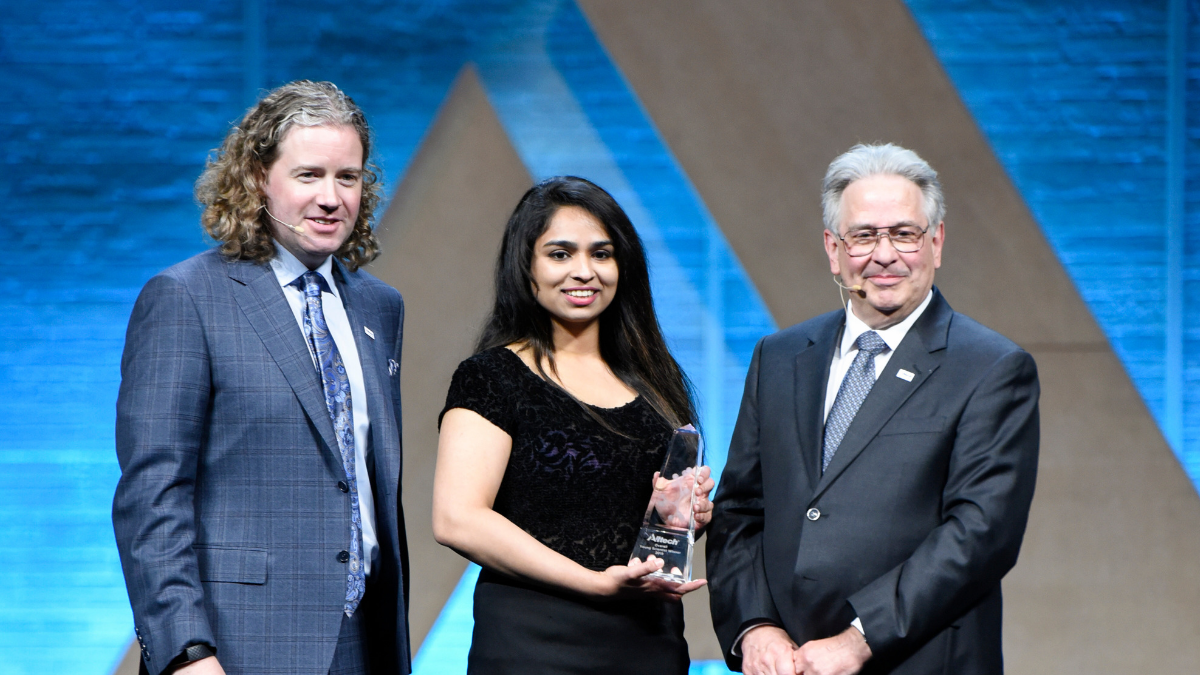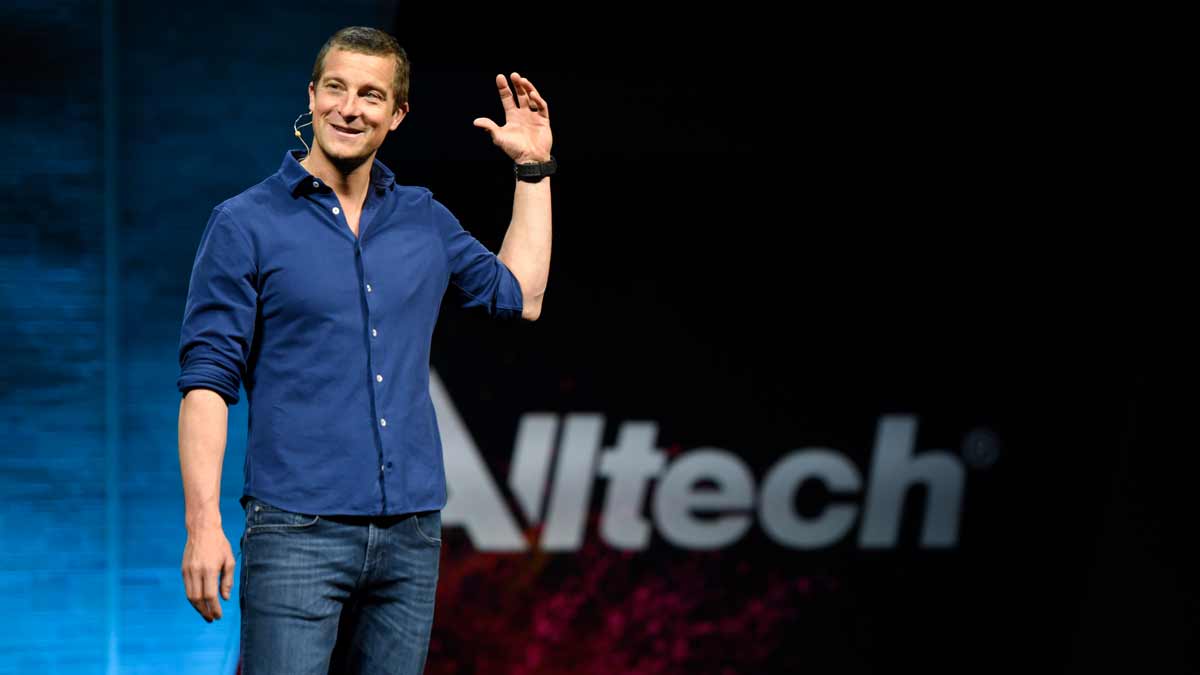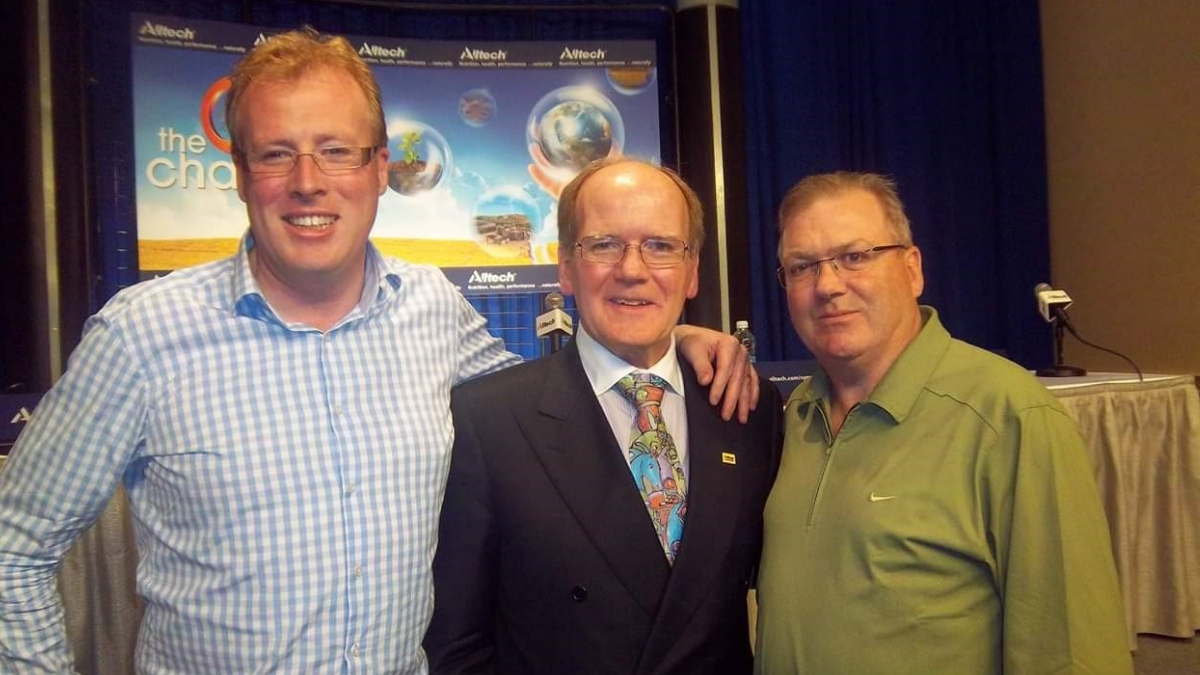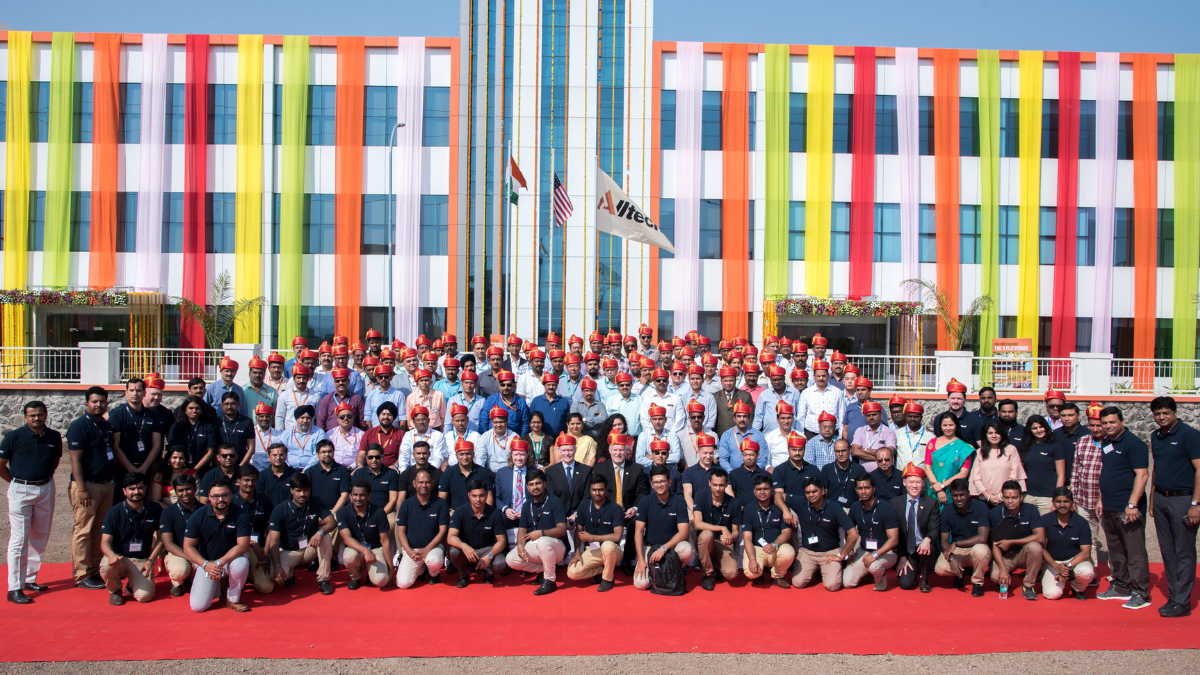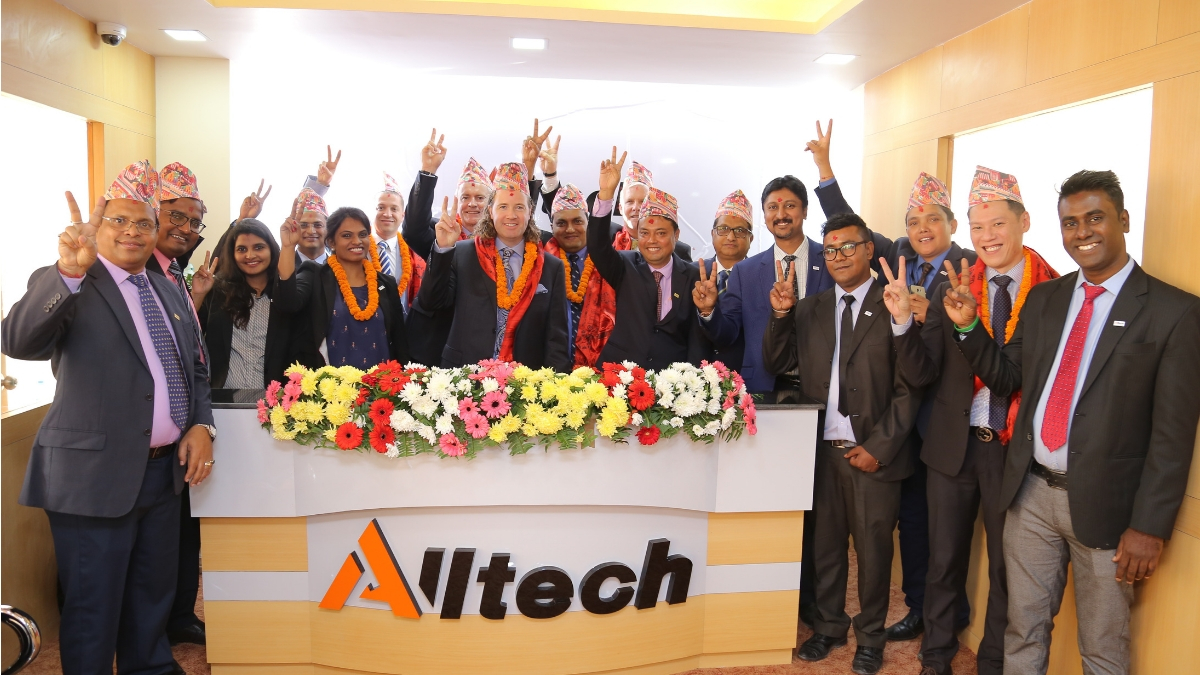The following is an edited transcript of Nicole Erwin's interview with David Donnan. Click below to hear the full audio:
Nicole: I'm talking with David Donnan, senior partner with A.T. Kearney, a global management consulting firm based in Chicago. David, welcome.
David: Hello.
Nicole: Your firm conducted a recent study called Consumers@250, which found that a fundamental shift in consumer behavior is underway. Can you tell me a little about some of the core findings and how Amazon, Alibaba and millennials have become the future influencers of retail?
David: Well, Consumers@250 has a special meaning: the year 2026 is the 250th anniversary, or “birthday,” of the United States. We looked out ten years — what were going to be the demographic, technology, resource, financial and economic issues facing us in the next ten years, and how they would impact consumers. We looked at, at that point in time, the two biggest cohorts, the two biggest population groupings or generations, which will be millennials, which we're all familiar with, and Generation Z, the ones following right after millennials. In fact, baby boomers, who have been such a dynamic force in the economics of the world for so long, are actually, unfortunately, on the decline, and will be much less of an influence. Most of them will be retired [and] have less income and less spending capabilities.
We look at millennials and Generation Z and ask, “What are the fundamental drivers that are affecting them, that are changing how they buy things differently than what we've seen before?” Primarily, over the last 30 years, there have been three drivers of consumption that we've looked at, and those drivers are usually affluence, persuasion and scale. Affluence ― we all wanted to be better than our parents. We all wanted to earn more money. We all wanted to be richer. Persuasion was how the brands took advantage of us. They persuaded us to buy their products. “You'll be smarter, you'll be thinner, you'll be better-liked if you use our product.” And then, finally, scale. You had to have big plants, big factories, big marketing budgets, big sales forces to succeed in that. That's how our entire consumer products industry has developed: large retailers, large CPG companies. We believe this has changed. The change is that, now, there are three new drivers, which are influence, trust and personalization. That's what my whole presentation [at ONE: The Alltech Ideas Conference (ONE18)] is around — how each one of those influence our consumers.
Nicole: And how does categorizing Generation Z and millennials and these different groups help in understanding marketing?
David: There is no such thing as [an] average millennial, just like there is no such thing as an average baby boomer or an average anyone. But we do see fundamental shifts in how they receive information ― how they process information ― and what we look at as what is driving their values in how they purchase things. Value is being driven by products that have some purpose behind them. Is it a sustainability purpose? Is it a purpose behind nutritional content? Is it a new purpose behind child welfare or about localized byproducts? Those things are becoming much, much more part of the influence we're seeing with consumer products, whereas, in the past, we used to buy based on value. We would buy eggs as cheaply as we could get them for a dozen. Now, we buy omega-3 eggs. We buy cage-free eggs. We buy eggs that are GMO-free. Those are all values-based purchases rather than value-based purchases.
Nicole: As you said, consumers are growing more passionate about the things that they purchase, including the food that they eat. It's really interesting to see how all these reality TV shows glorifying chefs have really taken off over the years. What impact have celebrity chefs had in the local food movement ― in driving the farm-to-table fresh approach to consumption?
David: I think the celebrity chefs have really made food entertainment. I mean, if we look back 20-30 years, food was there for nutrition. We were there to eat, to get calories. They ate food that tastes good and, occasionally, went out to a restaurant. Now, with celebrity chefs and with the whole food movement, food is celebrated in a different way, and people look to food as not only a measure of getting nutrition ― of getting calories ― but an expression of their self-worth, an expression of their own character. And I won't even challenge now, I think celebrity chefs are on their way out.
Nicole: Really?
David: Now, we're celebrating the local farmer. We're celebrating that local producer, the farmer, the cattlemen, the local butcher with the local produce person. They are becoming the true measure, the true icons of the food industry today, as we look beyond the glitz of celebrity chefs to the real, fundamental values and authenticity of a local farmer.
Nicole: How is the local farmer being celebrated? Is it through digital media, social network?
David: Probably, first and foremost, farmers’ markets. There has been a giant growth in farmers’ markets over the last several years, and every town has a farmers’ market. Every neighborhood has a farmers' market, so that's driving that.
Second, grocery stores now are trying to replicate farmers' markets in their produce sections. If you look at grocery stores, most people shop what's called “the perimeter” of the grocery store; that is the area outside the center. Instead of going up and down those straight isles ― those boring isles ― they go to the perimeter, which is all around the seafood, the meats, the poultry, the fresh vegetables and fruits, the deli, the bakery and the dairy. All of those are where we're going, and those are mimicking a farmers' market.
Then there is social media. Look at what's happening now, with the capabilities for full traceability. So, when I go to a Whole Foods, Kroger or Walmart, I can not only buy my fresh produce, but I know where it came from ― not only where it came from but how it was made. It's not just buying broccoli; it’s buying broccoli that came from this farm and it came through these processes. That's a different set of information than we've had before.
Nicole: Would you say that millennials are more impressionable, hence the impact of these shows and being able to change the dynamic of the store? Or is it the opposite of that? And if it is, what is it that people are connecting with in the programs and at the things that you're mentioning?
David: I don't know if it's a matter of being impressionable. I see, across the board — whether it's millennials, boomers, Generation Z or the Alpha generation that follows Generation Z — there is a shift in trust of authority figures. If you look at the Edelman Study on trust every year, which is the trust barometer, trust in the institutions has gone down dramatically. So, trust in governments has gone down, trust in big business had gone down. Part of the equation on trust is, who do you trust? What we're finding, particularly with the age of social media and digitally enabled consumers ― mostly millennials and Generation Z, which are the first digitally native generation to grow up totally digital ― is that their trust is around their friends. Their trust is around social media activities. Their trust is around influencers on social media. So, maybe Laura Vitale — who is an Italian chef who talks about great Italian cooking — she becomes the trusted person, rather than the USDA food plate or nutritional pyramid.
Nicole: Interesting. What viewpoints in products that were once outliers with co-ops and local health food stores would you say have gone mainstream?
David: Avocado is number one. Bone broth is now coming up into play, as we're seeing the use of collagen ― using collagen and bone broth to help your skin. So, we're using it as a cosmetic that you digest. Quinoa was obviously one that came and has kind of come and gone. We’re just getting into arugula and all the different types of vegetables and salads.
We're also seeing ― and it's just starting now ― a whole area of supplements and vitamins and other, what I would call “non-mainstream” types of products with no scientific evidence behind it. The whole thing, I think, about food is that we're all clustering into “food tribes.” Think about it: it used to be, if you're from Italy, you'd eat Italian. If you're from Greece, you'd eat Greek. If you're from China, you eat Chinese. Now, food tribes go around nutritional norms. I'm a vegan. I'm Paleo. I'm a person that only eats gluten-free products. So, you tend to tribe around what you're eating now rather [than] the country you came from in your daily eating as well. That has an effect on the types of products that were non-mainstream before coming into [the] mainstream.
Nicole: How is this same demand for transparency impacting the ag industry? Is the pressure as strong? And, if so, where do you see new consumer demands really taking effect in impacting the future?
David: If you talk to grocery stores or restaurants, they want to have that transparency back to the farm. They want to know, “Is this chicken antibiotic-free? Has it always been antibiotic-free? Is it cage-free?” I want to know about these vegetables. Have they been sprayed with fungicide, herbicide, pesticide, et cetera? That pushes its way back to the food brokers and the food wholesalers, who then push back to the farmers as well. I'm seeing that farmers are very, very responsive to this. They are trying to get sustainable agriculture ― regenerative agriculture ― trying to reduce the amount of fungicides and pesticides and herbicides they are using, trying to be much more cautious but also much more thoughtful on how they make the product as well. They realize consumers are ultimately going to buy this product, and that's what they're going to look for. It may or may not be organic. I mean, organic is one part of what consumers look at, but people may just want less processing, less artificial in the product.
Nicole: Throughout some of your articles that I've seen online, you mentioned the significance of personalization. How is this created to influence consumer engagement?
David: Well, I think we're at a level of personalization now that we've never seen before because of our connection with digital media and digital technology. We all have iPhones ― or most of us do. Many of us have Fitbits, and so we're also measuring when we're exercising. All that information is going somewhere. Google and Facebook and others know when you're awake and when you're sleeping and when you're walking and how much activity you're doing and what your heart rate is. All that data allows companies to target active people versus targeting non-active people. They can say, “I'm going to target people who are much more physically enabled in these types of sports than others.” That type of a process is going on.
I think one of the greatest phrases I've heard is, “If you're getting Facebook for free, you're not the customer; you're the product.” The amount of information that's being gathered on each one of us is over five gigabytes a person, and it's really just on all of our activities, and that information is being used to better personalize.
Nicole: Does that cause some dissonance with millennials and Generation Z? Because it seems like it would.
David: It can, because I think, right now, people are willing to give information up if they get something in return. The recent scandals at Facebook and some of the things with Cambridge Analytica and everything else, I think they're starting to put a pause on it. Although, Facebook's numbers still are increasing — they're not decreasing. So, I think people are willing to give up personal information if they get something back that they feel is of value.
Nicole: I think something that really made a presence with this last presidential election was the increased hype behind purchasing power. Consumers are putting their money behind products that meet their worldview, ethically and however else. Why hasn't this been tapped into before, and why is this a millennial or Generation X thing?
David: Well, I think the whole idea of purchase decisions has become more of a thing, more of a movement in the last 10 to 15 years. I think it, again, comes back to the issue of trust. We have less trust in government institutions, less trust in big business. But we trust our own purchases and we trust what we do. I know that if, for example, I do not want eggs coming from hens that have been caged, then I have a way of expressing that view by buying cage-free eggs. Similarly, I can buy other products that have a worldview either on sustainability, environmentalism, et cetera. That is being heard by companies. In fact, what we're seeing is that a lot of the changes that are occurring ― whether they are in regulatory food safety, sustainability, environmental concern ― are being driven by companies, not necessarily being driven by more federal or state regulations. I think that's a very positive thing because it means consumers really are in charge of saying what is it we value, and how do we make sure that it is being delivered to us in the way we want.
Nicole: Is that really increasing the role of corporate social responsibility?
David: I think it does. I think many corporations have realized how important it is that corporate social responsibility is a key part. It is very fickle as well; you can lose it very quickly if you do something that people deem to be unethical or against your values. I think companies now are paying very close attention to making sure that they are living what they say.
Nicole: Did the report reveal that the top 25 U.S. food manufacturers' share of U.S. food and beverage retail sales has declined from 66 percent in 2012 to 63 percent in 2015? Or is this something that was known before Consumers@250?
David: It was generally known, I think, in the last two years. But I think if you look at the large CPG (consumer product goods companies) and food companies, they have lost a lot of share in the last 3 or 4 years. In fact, it’s a loss of over $15 billion in market share. The reason is twofold. One is that there is much more movement towards fresh. We're shopping the perimeter rather than the center of the store. The second is that there are a lot more startups now. Look at your Chobani and what they did to the yogurt industry. Look at what RXBar is doing now with Kellogg. I mean, there are a variety of things where new startups, innovators, more authentic brands are taking share away from some of the larger companies.
Nicole: If you think about the beer industry, though, a lot of these larger companies are buying up micro-breweries because the brands are hyperlocal. Is this a quick fix, or is it strategic overall that the local beer movement seems to really have come against these buyouts?
David: I think if you're a startup, if you're a small entrepreneur, I mean, getting bought out is kind of a good thing in some ways because you do get to cash out all of your investment. But, yes, again, it's the authentic nature of it. Authenticity is important. If, all of a sudden, we find out these craft breweries are just being run out of some big mega-factory in the middle of the grain fields, then we're going to lose interest in it. Part of it is that we like the fact that it is local. Part of it is, like, the fact that it has some community involvement as well.
I think there is also a shift in technology that's occurring. Whereas scale, as I've mentioned before, was a key determinant to success, now, scale is less important because I can actually manufacture ― I can produce goods on smaller lot sizes now, using things like HPP (high-pressure pasteurization), using vertical farming or an indoor grow that can grow vegetables right inside of a warehouse or on top of a roof, or using other types of technologies around sous-vide or other types of preservation technologies, which allow me to grow things, to make things, to prepare things very locally.
Think about what's happening now in the home delivery business. It used to be, you're at home, you order pizza, and that was about it. Now, with Uber Eats, Grubhub, Foodora, Blue Apron and all of the other options, there are just many, many options to get fresh, good-quality, highly nutritious food delivered to your house. That's fundamentally different than even [what] occurred five years ago.
Nicole: Seeing these stronger local movements move forward makes me think a greater distribution of market wealth could surface. Is that what you're saying? How does a shift like this influence corporate social responsibility efforts?
David: Yes. There is an opportunity for more distribution of wealth. However, there is still a concentration with large companies because they have access to capital. Large companies also have access to large distribution formats, et cetera. But the thing that is leveling the playing field is that companies like Alibaba and Amazon ― Alibaba in China, which is much bigger than Amazon ― 30 to 40 percent of their vendors are small “mom and pops”; they're independent. They are not large companies. So, the ability for a small company to get a platform, to get distribution and to get access to a community is much easier than it ever was before.
Nicole: So, it's more collaborative?
David: It should be. Yeah, much more collaborative ― an ability to, again, get consumer access, distribution and engagement, because you have something to sell and you have a story to sell, rather than just [the] fact you happened to be on the shelf because you happened to pay the slotting fee to get there.
Nicole: Is there anything else your research revealed regarding changes that could potentially shape the next decade in retail?
David: Well, I think, in the next decade of retail, watch China, and look what's happening with Alibaba and their new retail formats. They are a combination of physical format and online format, much like the Amazon Go in Seattle. You go into the store, you are already registered on your app, you bring in your phone, you get the product, it gives you all the information, it tracks you, you pay by face scan ― your face is actually scanned, and that's what pays for the product. What they've made is what I'll call the “ultimate convenience store.” You walk in, find your product, you already know what's there, it's giving you alerts, and you walk out and that's it. There is no cash transaction. There is no standing in line. If the product is not on the shelf, it automatically recognizes that and will have it delivered to your house. I mean, it's just this combination of online and physical retail, which I think gives you high-touch but high-tech as well.
Nicole: David Donnan is a senior partner with A.T. Kearney, a global management consulting firm based in Chicago. Thank you so much.
David: Well, thank you.
David Donnan shared his insights at ONE: The Alltech Ideas Conference (ONE18). Click here to learn more about how you can be part of the global ideas exchange.
